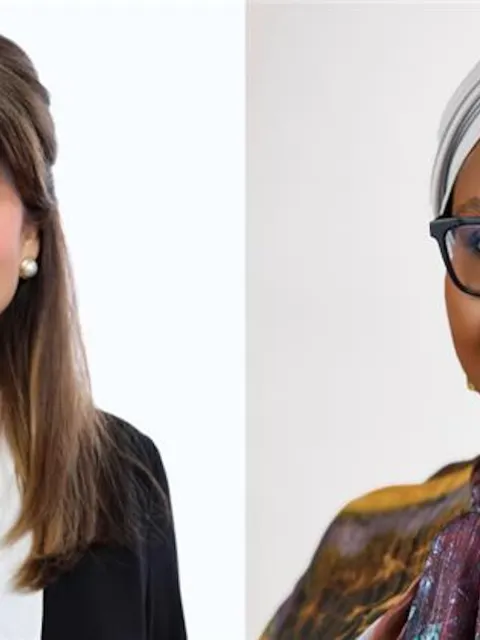Podcast "Let's Talk Cancer": Caring for older adults – a topic that concerns everyone

In this podcast episode of Let’s talk cancer on cancer and ageing, Dr Enrique Soto speaks about the need for more patient-centred care and geriatric oncology expertise in caring for older adults with cancer.
More than half of people with cancer are 65 or older. And yet, the quality of care given to them often doesn’t meet their specific needs and can be inferior to younger adults. Why is this?
One reason is that early cancer symptoms can be mistaken for everyday pain or minor illnesses associated with old age, leading to late diagnosis. Another is the lack of programmes and services as well as geriatric oncology expertise. A third is the problem of ageism that pervades cultures and institutions and a sense that older adults may not be a priority in the allocation of resources for cancer.
In this edition of "Let's talk cancer", Dr Enrique Soto, a 2021-2022 UICC Young Leader from the National Institute of Medical Sciences and Nutrition in Mexico, talks about the need for more patient-centred care and geriatric oncology expertise, and the misconceptions that often surround what is considered a “niche” topic but concerns more than half of all cancer patients.
"If we look at our waiting rooms, most people that are being treated for cancer are older adults. And still oncologists and many other healthcare providers fail to see this as a population that requires special attention. And I think that this may be due to a lack of awareness. Many people aren't aware of the things that they should be doing or that they could be doing to improve the care of their older patients, better ways to assess them, to evaluate them, to provide them support, and to tailor treatment for their needs."
– Dr Enrique Soto, National Institute of Medical Sciences and Nutrition in Mexico; UICC Young Leader 2021-2022
See podcast transcript below
Listen on: Spotify | Stitcher | Apple Podcasts | Amazon Music | Audible | Deezer
Podcast transcript
Nicole Engelbrecht, Head of Communications and Marketing, UICC
Welcome to Let's Talk Cancer by the Union for International Cancer Control, an organisation that unites and supports the cancer community to reduce the global cancer burden. I'm Nicole Engelbrecht, Head of Communications and Marketing at UICC. I'll be taking over from our usual host today Cary Adams while he's out of office. More than half of people with cancer are 65 years and older. Yet the quality of care given to them often doesn't meet their specific needs, and can be inferior to that for younger adults. One reason is that early cancer symptoms can be mistaken for everyday pain or minor illnesses associated with old age, leading to late diagnosis. Another is the lack of programs and services as well as geriatric oncology expertise. A third is the problem of ageism that pervades cultures and institutions and a sense that older adults may not be a priority in the allocation of resources for cancer. With us today to discuss the causes and solutions is Dr. Enrique Soto from the National Institute of Medical Sciences and Nutrition in Mexico. Great to have you on this podcast, a warm welcome.
Dr Enrique Soto, National Institute of Medical Sciences and Nutrition in Mexico
Hi, Nicole.
Nicole Engelbrecht
Let me dive right into it. As life expectancy is increasing worldwide, the number of older adults with cancer will also grow. How is it then that the cancer care for older adults remains somewhat of a niche topic that does not receive more attention.
Dr Enrique Soto
If we look at our waiting rooms, most people that are being treated for cancer are older adults. And still oncologists and many other healthcare providers fail to see this as a population that requires special attention. And I think that this may be due to a lack of awareness. Many people aren't aware of the things that they should be doing or that they could be doing to improve the care of their older patients, better ways to assess them, to evaluate them, to provide them support, and to tailor treatment for their needs. Now, quoting Dr. Stuart Lippman, was one of our past presidents at the International Society of Geriatric oncologist: "in a way, every oncologist is a geriatric oncologist" because most of the patients that we treat are older patients - well, maybe with the exception of pediatricians, who won't be seeing many older adults.
Nicole Engelbrecht
Yes, and I believe that many medical schools still don't teach geriatrics from what I understand. So that's also something that would probably be important to change if we want to raise awareness and understanding of the issue. But while that is the case, what is the concrete impact on older patients living with cancer?
Dr Enrique Soto
I think that there are many ways in which we can assess the impact of these. We know that providing geriatric centered care and actually identifying issues other than the cancer diagnosis that are affecting the quality of life and the everyday activities of an individual is relevant. There are many things that we as oncologists are not trained to ask. And you correctly said it: most universities in the world do not teach geriatrics, there is a global shortage of geriatricians, and as oncologists, we receive very little or no training in geriatrics at all. So these things like how are older adults are coping with their everyday activities, nutritionalist tattoos, things that have to do with depression and anxiety, fals, all of these things impact the way in which another adult lives through their cancer diagnosis from the moment of diagnosis all the way through the short survivorship phase. And taking this into account can actually improve the way in which we treat our patients and can make them have a better quality of life. In addition, there is now evidence that shows that actually tailoring treatments and providing supportive care based on geriatric assessments can actually lead to improve cancer outcomes. So patients can actually have less toxicity, better quality of life, reduce hospitalisations if you implement these, and global societies such as the International Society of Geriatric Oncology, or the American Society of Clinical Oncology, ASCO, now recommend performing a geriatric assessment or some form of geriatric assessment in every other patient that's about to start treatment because that's the best way in which we can know our patients better and do things that will actually improve the way they live.
Nicole Engelbrecht
So you're really arguing for a patient-centered approach, which is something that is talked about in the health community with regards to any patient right? It's about respect for the patient. It means finding the best possible and most appropriate care in line with the person's wishes and situation, but from what you're describing, the older people are particularly vulnerable and they have an immense need for such a patient-centered approach, I would say. Would that also mean that invasive lifesaving treat is not necessarily the best solution for everyone?
Dr Enrique Soto
It makes no sense that we are practicing medicine, and that we are treating patients without making patients the center of our care. So in a way, I like to think of geriatric oncology as precision medicine that is not tumor centric, but rather patient centric. So when you really get to know your patient, beyond tumour type, beyond a small assessment of functional status, you can actually look at all the things that are going on in a holistic way. And you can actually align your treatment and your expectations as a physician with the patient's expectations. There is a ton of data showing that sometimes what is important for us as physicians is not necessarily what matters to our patients. We actually did a very nice study, we presented it at the American Society of Oncology some years ago, in which we asked all the patients that were getting chemotherapy what was the most important outcome for them, and we asked them to rate different outcomes that included living as long as possible, maintaining my independence, being free from symptoms, preserving my cognitive abilities. And although about half of the patients chose survival as the most important outcome, almost half chose other things over survival. So for some of our patients, maintaining their functional abilities is far more important than living as long as possible, and for example, 80% of our patients said that they would rather die than lose their ability to think by themselves to keep their cognitive abilities. So other outcomes are certainly as important or more important than survival. And in older patients, I think that one of the other things is that the way we measure time changes as we age. So an example I always like to give is, when I was a young kid, the time between my birthdays, or the time between each Christmas seemed like forever, it was like Christmas is never happening. And now years go by extremely fast, because you measure time with what you have lived before. So for a 90 year old, if we are offering a toxic treatment that may have them coming to the hospital a lot for a three month advantage in survival, it may not be as relevant as for a younger adult. I mean, this changes from person to person, some older persons value survival in a very high way. And the only way that we can know is asking.
Nicole Engelbrecht
It makes a lot of sense. It's actually surprising that it's not happening more often, as you say it's really about asking and not making any wrong assumptions. Linked to that I'd like to bring in the the notion of ageism, and also misconceptions and prejudices, surrounding cancer and aging. Where do these misconceptions come from? Where do they originate?
Dr Enrique Soto
I mean, ageism exists across cultures, it changes, of course, from culture to culture. It exists at the patient level, I mean, patients are often ageists towards themselves. So they believe that because they are older, they shouldn't be getting treatment, or they shouldn't be being seen at high quality hospitals or they just don't deserve treatment. So there's a lot of self ageism- There is ageism across the healthcare systems. So we have, as you correctly said, a lot of assumptions regarding what our patients value without even asking them. The healthcare system itself, the organisation is ageist because most or a lot of public policies are mostly targeted towards younger individuals. There is ageism in the media. So ageism is everywhere. And actually, the United Nations just published a report on ageism, that is extremely interesting. And showing that this is a real problem for the future, because, and again something that doesn't make sense, because if we are lucky, we eventually will be older patients now. So ageism is always a sort of discrimination against yourself, because you will eventually, if you're lucky, be old, and then you will be discriminated against. So it's a crazy form of discrimination because you're always discriminating against yourself or your future self. Actually, something that really brought ageism to the forefront was the COVID pandemic, we saw this, a lot. Older adults were, were seen in many cases as disposable individuals or disposable part of society, older adults living in nursing homes had a very hard time. And these same things even in a lower scale, because it's not something that is in the news every day but the same things happen in cancer. So family members do not take their other patients to the hospital if they have symptoms, because well, they're old, so this is normal. I've had a lot of patients who for example, feel lumps in their breasts and because they are older, they just don't want to be a bother. They do not want to go to the hospital. So we need to have a systemic change in the way we see old age as something that is very valuable. And I think that we need to have people with geriatric expertise in decision making capacity, in decision making panels, in cancer plans and patient voices, I think there is a lack, an alarming lack, of older patient voices out there.
Nicole Engelbrecht
And how can health systems be prepared to facilitate such a holistic approach and a holistic approach that also includes potential treatment of other diseases that older people might have, in addition to cancer - could be dementia could be diabetes and other NCDs. How could that system be prepared to facilitate such a holistic approach?
Dr Enrique Soto
A single physician with a single specialty is, in most cases, insufficient to provide adequate care for another patient. So I think that systems need to evolve to a multidisciplinary approach to care for the older individual. So as an oncologist working alone, you're very limited in the kinds of things that you can do. But there are other healthcare providers that are available across healthcare systems that are sometimes under utilised for the treatment of older patients. So having these teams that include healthcare professionals, mental health professionals, nutritionist, physical therapists, that are often available at the country or regional level, and are not used specifically for treating older patients. So do I believe that in the future, we will have geriatricians everywhere or that every other patient, globally will be seen by our good attrition? I don't think that will happen. But I do think that healthcare systems need to figure out or find out that providing these multidisciplinary care and conducting assessments for their patients identifying these vulnerabilities and treating them in a holistic way, using personnel that's already there can actually leads to great improvements in care. So I think there are various models of care for geriatrics that are mostly based on primary care, on outreach in the community, and that adopting those things for cancer care, can actually produce great benefits at costs that are reasonable for most healthcare system. So this is not something that needs $20,000 for those drugs, these are things that require awareness, finding the teams, talking to patients. So in a way, it's sometimes more complicated, but also cheaper, I think an easier to implement and certainly cost effective.
Nicole Engelbrecht
We know that the problem is bigger in low-and lower-middle income countries, not only for older patients living with cancer, but for all cancer patients. You wrote in a blog for UICC recently that in order to improve the care for older patients, but also for others with cancer, we need to develop global initiatives. Could you explain this need for global initiatives and a partnership approach that you have in mind?
Dr Enrique Soto
I think that this can be done from the clinical standpoint, the research standpoint, and the educational standpoint. So we need to be able to build collaborations in which people from low-and lower-middle income countries receive training in high quality excellent centers. In high income nations, I think that this educational collaboration needs to happen. And then we need to build models that are able to be adapted to the local setting. So I don't believe that the way forward is copying the models that are done in high income nations. But we do need to learn about how these processes work, and then bring them back to our setting and adapting it to available resources. And I think that this is feasible, and in the future, it could lead to the creation of centres of excellence in low and middle income countries that could eventually also lead to South-South collaborations. And I think that's the future now: this collaboration between low-and middle-income countries in order to improve the way that cancer care is provided for older patients. Also, in the research arena, I think there is a need to create global projects, cancer and aging, there is a need for funding. I know that there are some initiatives, looking at funding for example, young investigators, etc. in low-and middle-income countries. For example, UICC has the Technical Fellowships, and we've sent some of our fellows to train in cancer and aging related issues in high income nations, and then they've come back and started interesting projects in our centre. So that is a great example for me of our global collaboration. So I think there is a lot to be done and we can work together in creating clinical practice guidelines that are resource stratified global projects looking at the implementation of geriatric oncology. So I think the possibilities are endless. And as time goes by, and the older population starts to grow, these will be more and more of an issue. So we need to be prepared and start doing things before it's a problem.
Nicole Engelbrecht
And there's also the ICCP, the International Cancer Control Partnership to assist, especially low-and lower-middle income countries, the Ministry of Health and cancer control planning. So that's another good partnership approach.
Dr Enrique Soto
There is ongoing work on the new National Cancer Control Plan for Mexico. And we've been able to include now a section on geriatric oncology and older adult care, which, again, surprisingly, is missing from most national cancer control plans. So this is again a niche that shouldn't be a niche. Every cancer control program, every cancer control plan should include the specific things related to older individuals, there is no doubt in my mind.
Nicole Engelbrecht
We do need better data and a better understanding to improve cancer care for older adults living with cancer. Could you maybe explain to us which role clinical trials can play in that? Because some of our audience might not be aware of this. So what is the role of clinical trials? And should more older adults be included in clinical trials?
Dr Enrique Soto
The answer to that question is, of course. Most clinical trials and registration data trials of cancer drugs include a population that is very different from the population we see in everyday clinical practice. So the median age for diseases is 10-15 years above the median age of the registration clinical trials. And what this means for practicing oncologist is that they're making decisions on patients based on data that does not actually represent those patients, because those patients were just not included in the clinical trial now. And, of course, that's a problem because we're making decisions based on evidence that does not apply to the patient in front of us in the office. And I think that there have been some recent changes about that. I mean, now the NCI, for example, in the US, requires inclusion across the lifespan. So you cannot, can no longer have age limits in clinical trials. I feel very sad when I see clinical trials that have operative limits. I mean, this year, just at the ASCO annual meeting, one of the plenary session abstracts from Japan of all places have an upper age limit, which makes no sense. But for Japan even less, because we know that this is a country that has a large large population of other patients, so eliminating operating limit from clinical trials, basing inclusion on other parameters, physiological age parameters, rather than chronological age parameters. There are some trials that are focused on older patients that are including these outcomes, and that are very interesting, and I think more and more will come in the future. Older patients love to be in clinical trials, there is a ton of evidence showing that if you offer clinical trials to older patients, they will participate. And this is another example of ageism because in most cases, what happens is that researchers do not even offer trials to older patients. And this is because of misconceptions related to whether older patients would even want to participate, whether there is benefit or not. And so this is another example of ageism in research.
Nicole Engelbrecht
Looking ahead, what do you see in the future for the field of cancer and aging?
Dr Enrique Soto
I think there are a lot of positive developments, many international organisations that are very influential worldwide, like UICC, ASCO, ESMO are including more of a geriatric oncology focus in their programs, in their guidelines, in their meetings. These things will eventually, I believe, lead to policymakers including these topics into actual cancer control programs, and national cancer laws. And I think that eventually, and we're starting to see this, clinical practice guidelines and planning of cancer care will include geriatric expertise, and this is happening already worldwide. For example, also here in Mexico, in the breast cancer clinical cancer guidelines, we have included geriatric oncology, so we're working towards that. And I think there is a very, very enthusiastic group of people in cancer and aging, that are working towards making this happen. And I think that the future looks bright. I think that we are doing things and the community is picking up on this and seeing that this is something that is needed. And I see that in the future. This will stop being a niche. I don't believe that every patient will be seen by a geriatric oncologist. But I do think that in the future we will be able to - and this is a sort of a made up word - geriatrisize other healthcare providers so that they have this awareness when they are seeing older patients in clinic or designing a clinical trial, or building an educational program.
Nicole Engelbrecht
On this positive note, Enrique, thank you so much for sharing your insights today and the audience for joining us.
Dr Enrique Soto
Thank you so much for inviting me.
Nicole Engelbrecht
Thank you for listening to this episode of Let's Talk Cancer. Cancer and ageing will also be an important topic at this year's World Cancer Congress in Geneva. If you want to know more, visit our website or follow us on social media.
Last update
Friday 08 September 2023




